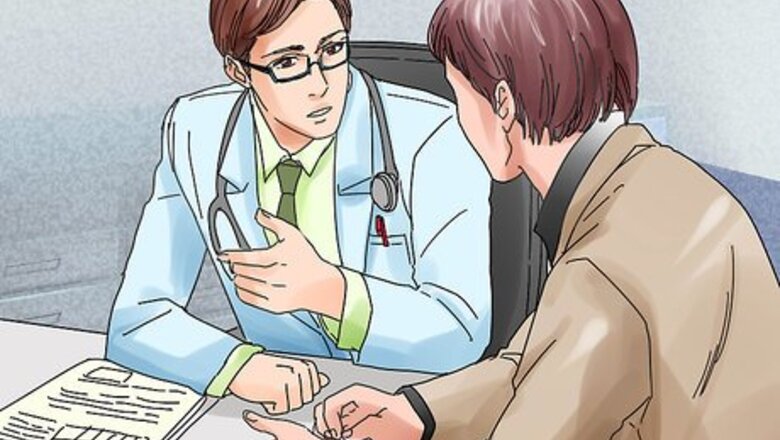
views
Seeking Professional Help
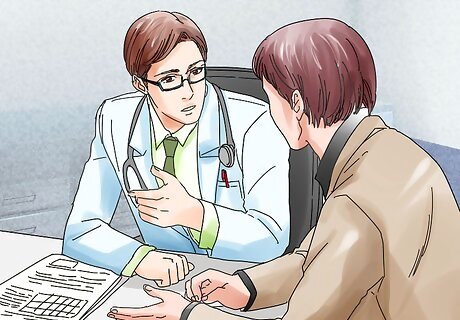
See a doctor for a thorough diagnosis. To receive an adequate diagnosis of schizophrenia, start by visiting your family physician. This doctor may be your first line of treatment for schizophrenia. They can conduct a physical examination, review your medical history, and help rule out other conditions that may cause similar symptoms.
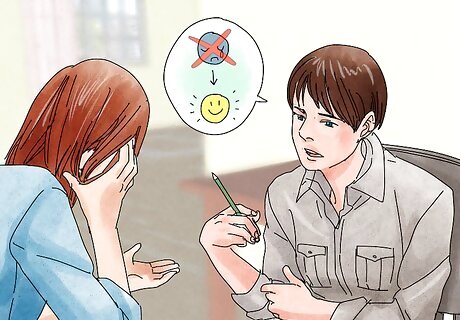
Undergo testing. If your doctor doesn’t find any medical explanation for your symptoms, they may refer you to a mental health provider for further testing. A psychiatrist or psychologist may perform a battery of tests to check your mental status and ask questions about your symptoms. Be honest and upfront about any symptoms you experience. Giving your mental health provider the full picture of your symptoms ensures that you receive the right diagnosis. Your doctor may ask whether you have seen or felt things that others didn’t (hallucinations) or have unshakable beliefs that aren't based in reality (delusions).
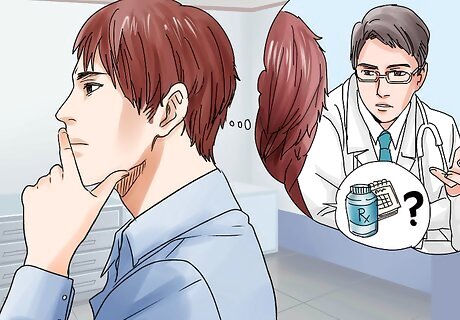
Discuss medication options with your doctor. Medication is typically at the foundation of treatment for schizophrenia. These medications work by improving the balance of chemicals in the brain that make you lose touch with reality. Talk to your doctor to determine which medication is right for you. The most effective medications for schizophrenia include antipsychotics, particularly second-generation medications that have fewer serious side effects (also known as atypical antipsychotics). Keep in mind, however, that you may have to try several medications before finding the one that best helps you manage your schizophrenia symptoms. Follow your doctor’s orders when taking your medications. Never stop taking your meds unless your doctor has instructed you to, as doing so could lead to serious side effects. If you experience negative side effects from your medication, let your doctor know as soon as possible. They will likely be able to switch you to a different medication.

Consider psychotherapy. Although medication is the best way to reduce schizophrenia symptoms, many people also find that talk therapy also helps them manage schizophrenia. Psychotherapy may involve educating yourself about how schizophrenia impacts your functioning, helping you cope with stress that exacerbates symptoms, and conducting reality testing. In addition to one-on-one therapy, you might also consider group therapy or family therapy. Both of which can help you learn to better manage living with schizophrenia.

Ask about electroconvulsive therapy. Electroconvulsive therapy, or ECT, is a procedure in which currents are sent through the brain to reverse the symptoms of severe mental illness. When used in combination with medication, ECT has proven to be an effective form of treating severe forms of schizophrenia that are resistant to typical treatments. If you are failing to see improvements from second-generation antipsychotics, you might ask your doctor about ECT.
Getting Support for Schizophrenia

Connect with a community intervention team. After you are diagnosed with schizophrenia, your health care providers should set you up with a community mental health team, sometimes called assertive community treatment (ACT). These teams consist of highly experienced professionals from a variety of backgrounds who can provide day-to-day individualized treatment and support for living with schizophrenia. Your team might consist of psychiatrists, psychologists, mental health nurses, pharmacists, counselors, social workers, and occupational therapists.

Involve your friends and family. Receiving support from your loved ones is critical to your ability to manage schizophrenia. Include your family and friends in doctor visits, ACT team meetings, therapy sessions, and support groups. Encourage them to ask your treatment team any questions they need to better support you. You might also make special requests as to how your loved ones can support you. These may include helping you spot early warning signs, helping you remember your medications, accompanying you to appointments, and helping you relearn skills to function in everyday life.

Participate in a support group. Being diagnosed with schizophrenia can make you feel isolated and misunderstood. That’s why it’s a great idea to connect with other people who are living with the condition. Self-help and support groups are designed to help you build relationships with others with schizophrenia. In support groups, you might discuss helpful coping strategies, get education about managing schizophrenia, and share stories about what’s it like living with the disorder. Ask your doctor or therapist about schizophrenia support groups in your area.
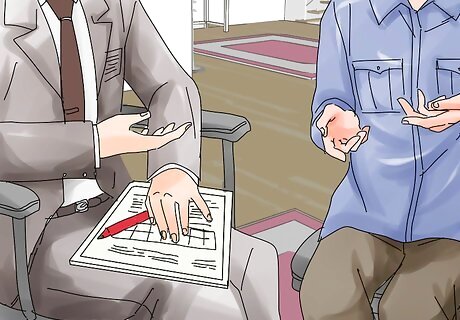
Get social skills training. Ask your community mental health team or support group about how you can receive social skills training. These behavioral interventions can help you better function in the community and feel more capable of managing schizophrenia. Social skills training can improve your quality of life by helping you behave appropriately in social situations, solve problems, communicate more effectively with those around you, and deal with everyday life stress.

Receive vocational rehabilitation. Doing meaningful work in your community can also help improve your quality of life with schizophrenia. Consider getting vocational training to help you develop transferrable skills, look for a job that suits your lifestyle and condition, and learn how to manage your money. In some cases, vocational training may be grouped in with social skills training.
Living with Schizophrenia

Eat a nutritious diet. Since food is fuel for the body and the brain, consuming a nutrient-rich diet can support your mental health. Avoid sugar, refined carbohydrates, coffee, and alcohol. Such foods can worsen your symptoms. Instead, eat plenty of green vegetables, fruits, whole grains, lean protein, beans, nuts and seeds. Omega-3 fatty acids have been shown to support brain health. Get omega-3s from salmon, mackerel, flaxseed, and walnuts. Or, ask your doctor about taking an omega-3 supplement.

Stay physically active. Exercise offers neuroprotective benefits to the brain while boosting your energy and mood. Aerobic exercise, in particular, has been shown to improve your ability to understand social situations, enhance attention span, and boost working memory. Get at least 30 minutes of physical activity each day. Try aerobic exercises like running, hiking, swimming, dancing, or cycling.

Build a consistent sleep routine. Poor sleep habits can signal a relapse of schizophrenia symptoms or worsen ongoing symptoms. It’s important to talk to your doctor about sleep problems and come up with a game plan for improving sleep quality and duration. Try sleeping only at night, reserving the bedroom for sleep and sex, and powering off electronic devices at least an hour before bed. You might also create a bedtime routine, such as taking a warm bath or doing some light reading. If sleep problems persist, tell your doctor. They may be able to prescribe new medications or change your current meds to help you sleep better.

Practice gratitude for the good days. Living with schizophrenia can mean having many days in which your symptoms are especially bad, leading to loss of contact with reality and even hospitalization. It can help to improve your outlook of living with this condition by starting a gratitude practice. Gratitude has been shown to benefit brain health and mood. Reap the benefits by jotting down some of the good things that happen on days when your symptoms are manageable.


















Comments
0 comment